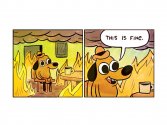US sanctions pressure on Russia shows geopolitics now trumps economics
- The US is increasingly focused on economic strategy as a way to contain Russia and China, deploying or threatening sanctions and insisting its allies do the same
- Great power politics is taking the place of economics, which has long been the driving force behind globalisation and liberalism in the post-Cold-War era
Speaking at the Munich Security Conference in February 2021, US President Joe Biden unveiled a new vector of US foreign policy by raising the struggle of
. Later, in April, he reiterated the narrative during an address to the US Congress and implied a special emphasis on competing with China and containing Russia.
This effort began to bear fruit that September with the emergence of the trilateral Aukus security grouping of the United States, UK and Australia. Originally billed as a programme to help Australia acquire nuclear-propelled submarines, the grouping’s remit has extended to co-development of
.
Aukus was not the only US instrument to foster a coalition among democratic nations. In December, Biden convened a virtual “
” with more than 100 nations, spotlighting the global rise of authoritarianism with a veiled nod at China and Russia.
The US has also been active in other initiatives with like-minded states, holding the first
last September. Lately, reports have emerged that Japan was informally invited to join Aukus while South Korea has sought to participate in Quad summits as an observer.
While the US has denied those reports, they appear to mesh with the broader US Indo-Pacific strategy unveiled this year, with an aim of curtailing China’s rise through “ironclad treaty alliances” among democratic states.
Washington now seems to be turning to the economic phase of its containment plan. US Treasury Secretary Janet Yellen has called for “
” to counter practices that violate national security and human rights, which she said should help like-minded countries “stand together to defend our international order”.
If the US previously focused on opposing its autocratic rivals through military and political means, it is now paying greater attention to the economic angle. This comes after repeated failures to coax China to be on the “
” when it comes to Russia. As a result, Washington has ramped up its rhetoric towards Beijing, threatening sanctions like those applied to Russia in the case of a military escalation in the Indo-Pacific.
With Russia now an international economic pariah, the US is likely to concentrate on trying to economically deter other autocratic states. It has launched a global campaign to exclude Russia from the Group of 20 economic framework, while at the same time accelerating its
aimed at countering China.
Now, Chinese scholars are taking a cautious view of another US initiative, the US$1 trillion “
” plan, which offers a “values-driven” partnership against China’s Belt and Road Initiative. Following the same logic, the US-China Economic and Security Review Commission’s recent hearings broached the idea of an “economic Nato” made up of democratic, free-market countries.
The US is resorting to pressuring its allies to turn them against Russia at the expense of economic profit. It is leaning on India to reduce
from Russia, which have sharply increased recently amid huge discounts following falls in European purchases.
Daleep Singh, the US deputy national security adviser, raised the issue during his visit to India. While New Delhi’s initial response was not enthusiastic, it appears to be warming to the idea. Some Indian refiners are excluding Russian oil from their tender basket while others are switching to off-paper purchases.
Indian officials have
the level of imports from Russia. Even so, the US has escalated pressure on global companies, including Indian and Chinese corporations, that service Russian airlines.
The US push to freeze Russian assets shows that globalisation and the liberal economic order have transformed into something new. It also signals to China that its US$1 trillion in US dollar-denominated foreign reserves could be at risk should it stray too far from US expectations.
Prominent Chinese economists were shocked to learn that the US would resort to freezing Russia’s foreign reserves. This is a clear hallmark of the international monetary system operating by different rules.
The usual approach to sanctions has also been transformed. In the past, any restrictions were enforced rather unevenly by the US and its allies, and only rarely were they applied in union. For example, Japan was
Russia in 2014, and the measures it used had far less of an impact when it did so.
South Korea did not impose sanctions on Russia at that time. In the future, though, all US allies are more likely to act in a unified manner as economic interests are increasingly giving way to geopolitics.
National security has become a bigger priority again, as BlackRock CEO Larry Fink said. This is also exemplified by the nearly unanimous response by large multinational corporations which have
, even at the cost of economic losses.
The Wall Street Journal reported that Goldman Sachs, JPMorgan and Citigroup have set aside a combined US$3.36 billion as reserves against credit losses, suggesting economic concerns are not foremost in the minds of firms leaving Russia.
This phenomenon shows how large international companies are reshaping their behaviour, from
from controversial locations to rethinking the very concept of international trade.
The US and its allies are now bracing for long-term containment of Russia while also keeping an eye on the “China threat”, with both states likely to be a focus in the upcoming update of the US national security strategy.
The world is heading for a new geopolitical landscape with the US and its allies forming their own camp, as well as a new economic structure that is likely to be a reflection of the aforementioned geopolitical paradigm. Great power politics is taking the place of economics, which has long been the driving force behind globalisation and liberalism in the post-Cold-War era.
Danil Bochkov is an expert at the Russian International Affairs Council
Non paywall: 
